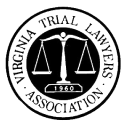
Have you suffered injuries in a boat accident caused by someone else? You may have the right to pursue compensation for your injuries and other losses. A Prince William County boat accident lawyer can help you navigate the complexities of a boat accident case and seek the financial relief you need.
Let D. Michael Mullori, Jr., Attorney at Law, advocate for your rights and interests.
For over 20 years, Mike Mullori has provided zealous representation for injury victims throughout Virginia. He has dedicated his career to protecting his clients’ well-being and helping them through difficult times as they recover from life-altering accidents. Mike works personally with each client, keeping his caseload small to devote his time and energy to providing personalized service. He operates on a contingency fee basis, so you owe no legal fees unless Mike recovers compensation for you.
If you’ve suffered injuries in a boating accident in Virginia, you deserve to seek compensation from the parties responsible. Contact Mike online or call (703) 762-2142 today for a free initial case review.
What You Should Do if You Are Involved in a Boating Accident in Prince William County
If you were injured in a boating accident, you should act quickly to protect your health and your right to pursue compensation.
Some steps you should take after a boating accident in Prince William County include:
- Exchange information with other operators involved in the accident.
- Report the accident to local law enforcement or a Conservation Police Officer and file a formal report with the Department of Wildlife and Recreation within 48 hours of an accident involving injury, death, or disappearance. If the accident does not involve injury, death, or disappearance, report it within 10 days.
- Seek immediate medical attention to have injuries you suffered in the accident diagnosed. Follow your doctor’s treatment instructions.
- Request copies of accident reports and your medical records.
- Gather any bills, invoices, or receipts to document your expenses from the accident. Keep copies of your pay stubs or income statements if you miss work or have reduced earnings after the accident.
- Consider starting a diary or journal to document physical pain, limitations on daily activities, and emotional distress you experience as you recover from the accident.
What Compensation Can I Recover from a Prince William County Boat Accident?
If you’ve suffered injuries in a boat accident, you may have the right to pursue compensation for your losses.
By working with a boat accident lawyer in Prince William County, you could seek money for:
- Medical treatment and rehabilitation
- Long-term care for disabilities caused by your injuries
- Ongoing and future lost wages and employment benefits
- Physical pain and anguish
- Emotional trauma and distress
- Lost enjoyment or quality of life due to disabilities or permanent, visible scarring and disfigurement
- Boat repairs or reimbursement for the value of a totaled boat
What Are the State’s Boating Laws?
State law governs the ownership and use of boats and watercraft in the waters in and around Virginia.
Important boating laws for boat owners to remember include the following:
- All watercraft with internal combustion or electric motors must have a certificate of title and certificate of registration. Sail-powered boats longer than 18 feet only need a certificate of title. Boats must display their registration numbers on each side of the forward half of the hull.
- Boats must have an easily accessible U.S. Coast Guard-approved life jacket for each passenger, including children’s life jackets for young children. Children must wear life jackets except below deck or in an enclosed cabin. Boats 16 feet or longer must also have a throwable device.
- Boats must have fire extinguishers, an engine cut-off switch, a ventilation system, a muffler for inboard engines, a horn/bell/whistle, visual distress signals, and navigation lights.
- All boat operators who operate craft with a motor capable of producing 10 or more horsepower must take a boating safety course provided by the Virginia Department of Wildlife and Recreation or a NASBLA-approved course offered by the U.S. Coast Guard Auxiliary or the U.S. Power Squadrons.
- Personal watercraft operators must be at least 14 years old, although the law does not impose a minimum age requirement to operate any powered vessel other than a personal watercraft.
- Virginia’s Implied Consent Law also applies to boat operators. Refusal to submit to breath or blood testing will result in the revocation of operating privileges.
- Operators may not travel faster than wake speed in a “no wake” area or within 50 feet of a dock, pier, boat ramp, boathouse, or swimmers. Boaters must slow to below wake speed within 200 feet of a law enforcement vessel with activated emergency lights.
- Boaters involved in an accident must stop, render assistance, exchange information, and timely report the accident.
What Are Common Injuries Someone Can Sustain in a Boating Accident?
Victims of a boating accident can suffer a wide range of injuries depending on the circumstances.
Examples of common injuries that occur in boat accidents include:
- Lacerations
- Abrasions
- Degloving injuries
- Burns
- Electrocutions
- Dislocated joints
- Broken bones
- Ligament sprains/tears
- Muscle or tendon strains/tears
- Perforation injuries
- Internal organ damage
- Neck and back injuries, including whiplash, herniated spinal discs, or spinal cord injuries
- Facial injuries, including eye and ear damage
- Traumatic brain injuries
- Hypothermia
- Drowning injuries
- Crush injuries
- Traumatic amputation or limb loss



